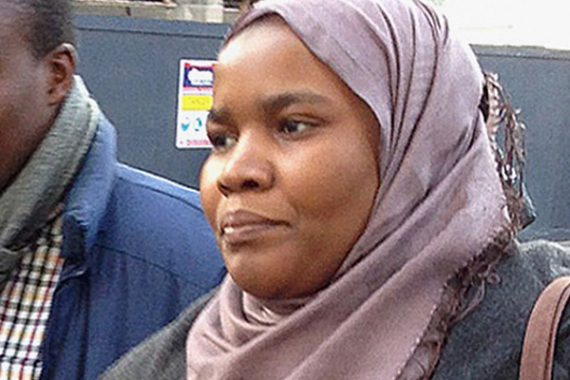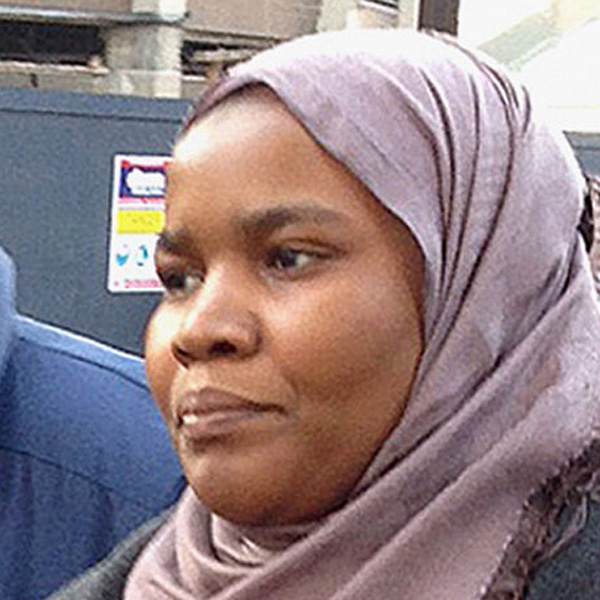Revealed: how reflections were used in the Bawa-Garba case

The health secretary, the medical royal colleges and the BMA have been unusually united this week: doctors should be allowed to be honest and reflective with no repercussions.
This has come about as a result of the case of Dr Hadiza Bawa-Garba, the junior doctor who was convicted of manslaughter for the death of a six-year-old boy and struck off the medical register last week.
Much of the concerns centre around the use of Dr Bawa-Garba’s own reflections in her e-portfolio, and admission of culpability – which were reportedly used in the case against her.
We have to make sure doctors learn from mistakes
‘If we are going to keep patients safe, then we have to make sure that doctors are able to learn from mistakes,’ Mr Hunt told the Today programme on BBC Radio 4.
Some have even urged a complete boycott on including reflection in appraisals. BMA sessional GP subcommittee lead Dr Zoe Norris, who is a GP appraiser, told Pulse she wants a change in guidance: ‘We can no longer reflect openly and honestly, so the chances to learn from our mistakes is gone. There must be an immediate change in guidance for appraisers, and doctors, to protect us all.’

dr hadiza bawa garba jack mount death richard vernalls pa archive pa images pa 22026705 square
Bawa-Garba: timeline of a case that has rocked medicine
However, MPS – which represented Dr Bawa-Garba – has issued a statement to say that her e-portfolio reflections were never submitted to court, and encouraged all doctors to continue to engage in reflective practice.
Dr Pallavi Bradshaw, senior medicolegal adviser at Medical Protection, said: ‘The judgement from the high court to erase Dr Bawa-Garba from the medical register is disappointing and its implications will understandably be of concern to the healthcare community.
‘One particular area of anxiety was the purported use of Dr Bawa-Garba’s e-portfolio at the criminal trial. This has been widely misreported, as the e-portfolio did not form part of the evidence before the court and jury.’
This is corroborated by the prosecution QC, Andrew Thomas, who told Pulse: ‘As the MPS statement confirms, the reflection document did not feature at all in the Crown Court trial, so there is no question of Dr Bawa-Garba being asked any questions about it.’
So can doctors all feel reassured that their reflections, in an e-portfolio or appraisal, will not be used against them? Yes, and no.
Pulse has seen a transcript of the judge’s summing up and instructions to the jury in Nottingham Crown Court in 2015. The 160-page document makes no mention of Dr Bawa-Garba’s own reflections, and certainly no admissions of culpability.
The court was clear that reflections were irrelevant
Indeed, as Dr Bradshaw adds: ‘The court was clear that reflections were irrelevant to the facts to be determined and that no weight should be given to remarks documented after the event.’
But there is more to this. It’s true that Dr Bawa-Garba’s reflections in her e-portfolio were not submitted to court. However, elements of her e-portfolio were included in materials seen by expert witnesses.
Dr Martin Samuels, a consultant at Great Ormond Street Hospital and an expert witness for the defence, told Pulse: ‘In the preparation of my report, I did see some of the e-portfolio. It didn’t include reflections, but it did include trainer assessments.’
Dr Jonathan Cusack, Dr Bawa-Garba’s supervisor and a consultant neonatologist at Leicester Royal Infirmary told Pulse he had ‘full sight and helped her write her reflections’, but he was asked not to bring documents to court when he gave evidence at the trial in 2015.
‘I was asked to give evidence with no documents, ‘ he said. ‘I was just cross examined about Hadiza,’ he says.
He says that Dr Bawa-Garba actually wanted her e-portfolio reflections to be in the defence’s bundle of evidence, but Pulse understands from the MPS this did not happen.
But it is clear that Dr Bawa-Garba’s verbal reflections were used in court, in the form of evidence given by Dr Stephen O’Riordan, the consultant on-call on the day Jack Adcock died.
Dr Samuels said that he was aware that the parties in the case had sight of a document prepared by Dr O’Riordan after he had a reflective meeting with Dr Bawa-Garba: ‘That was prepared and widely available.’
An MPS spokesperson also said: ‘Dr Bawa-Garba did indeed meet duty consultant Dr O’Riordan after Jack’s death to discuss the incident and learnings – this is standard practice. Dr O’Riordan’s own notes following this discussion formed part of his witness evidence.’
It is unclear what weight the jury put on this evidence, as it is not mentioned in any of the judge’s summing up or sentencing statements, but the idea that a doctor’s personal reflections to a senior member of staff can be used in this way will cause much disquiet among doctors who are encouraged to have a ‘duty of candour’ at all times.
It also has implications for the safety of the health service and how the system learns from tragic events – such as Jack Adcock’s death. If doctors feel that their co-operation may be used in a criminal trial and/or help end their medical career, how honest will they be?
Pulse July survey
Take our July 2025 survey to potentially win £1.000 worth of tokens











